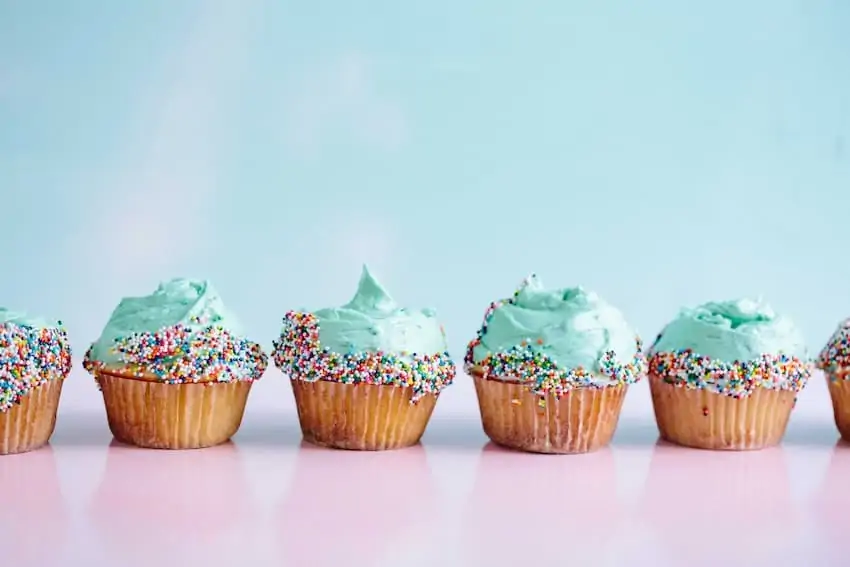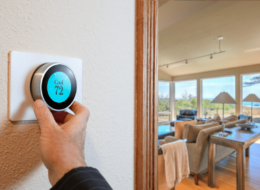Unfortunately, sleep troubles among the elderly is not an unusual plight.
Data from the National Poll on Healthy Aging show serious sleep issues among people over age 65, with 37% of seniors relying on sleep aid medicines and supplements in order to get a good night’s rest.
What’s more troubling is that there are significant risks and side effects to seniors taking prescription sleep medications, including dangers like increased risk of confusion, memory issues, and dizziness that can result in falls and other life-threatening accidents.
Even over-the-counter drugs have been shown to increase confusion, urinary retention, and constipation, which are all issues many seniors struggle with as is!
This brings about the question – are natural sleep aids a solution? Can natural sleep aids provide seniors with the relief they so desperately need, safely?
Well, yes and no. Natural sleep aids are generally safe than prescription sleep aids, but you’ll still want to talk to your doctor before taking any since some can interfere with existing medication. The efficacy of these natural treatments can at times be in question, with little research to support anecdotal reports.
However, most of these treatments are safe to at the very least try, so while there isn’t a ton of scientific evidence to support every option listed here, they are at least worth trying!
Below we’ll be listing several of the most popular natural sleep aids for elderly seniors to help them get some much-needed rest. Keep reading after though – we’ll also be sharing several other tips and tricks that can help a senior snooze soundly.
9 Natural Sleep Aids for Seniors
Chamomile tea

Plenty of restless sleepers have long heralded chamomile tea as a great natural sleep remedy. However, the jury is still out when it comes to the science.
There isn’t much scientific evidence to suggest that any nighttime drinks improve your chances of getting some zzs. But there is no harm in giving them a try if you are looking for natural sleep treatments that do not have side effects or drug interactions.
Valerian Root
Valerian root is a perennial herb that may help naturally treat insomnia and other sleep disorders.
In Europe, valerian root is widely used as a natural remedy for insomnia. Some studies show it may improve both sleep initiation (the ability to fall asleep) and sleep quality (how restful the sleep is).
However, the studies available that support valerian root for insomnia are problematic because they rely on the subject’s sleep quality measured by the participants’ subjective input, rather than objective assessments like measuring brain waves or heart rate.
Still, valerian root is relatively safe to try – although the safety of regular, long-term use has still yet to be determined.
Warm Milk

Another option is warm milk. Milk is believed to stimulate tryptophan, an amino acid that helps produce serotonin which is vital to regulating mood and healthy sleep patterns.
Glycine
Glycine is another amino acid that has some studies showing it can improve one’s ability to fall asleep. While scientists don’t know how glycine works for sure, it is thought to help people sleep by lowering body temperature at bedtime, signaling to the body that it’s time to start resting.
Several studies report that subjects who consumed glycine supplements at a dosage of 3 grams per day experienced less fatigue and daytime sleepiness than the placebo group.
You can also increase your glycine intake naturally by eating foods rich in glycine, such as bone broth, meat, eggs, beans, spinach, kale, and bananas.
Lavender Essential Oil

Lavender essential oil has soothing properties that can help you to relax and may aid you in getting some shut-eye. Using a lavender essential oil as a sleep aid is simple – just rub a few drops on your wrists or add it to your bath water at night.
Lavender oil pillow sprays are available in certain specialty spa stores, and there are even lavender balms you can apply to your skin as well.
You can also use lavender oil in an essential oil diffuser that will fill your room with the aroma of lavender. Some also like to use essential oil diffusers as a gentle white noise machine, which can also help put some folks to sleep.
Magnesium Supplements
Magnesium is used by the body to support a variety of different biochemical reactions and enzyme functions. One of these is sleep.
Natural variations in our circadian rhythm that cause us to be awake at night and sleepy during the day may be tied to magnesium levels in key areas of the brain, which means low levels could be a contributor to insomnia.
Currently, there is not enough research to prove the efficacy of magnesium in aiding sleep for senior citizens. But some research has shown that it may help older adults suffering from insomnia – both when used alone as well as in combination with melatonin and zinc.
Many individuals should be able to get appropriate magnesium levels simply through their diet and focusing on magnesium-rich foods like leafy greens, nuts, and seeds. Magnesium can interact with various medications, so make sure to consult with your doctor before trying magnesium supplements.
Passionflower

Passionflower is another natural sleep aid that has been used for centuries to treat anxiety and insomnia.
It’s believed to promote a calming effect when consumed as a tea. While there are some studies suggesting these calming effects are legitimate, other studies don’t see any benefit in sleep when compared against a placebo. So, there really isn’t enough scientific research available on passionflower as to whether it’s truly effective as a sleep aid or not.
The good news is that passionflower intake is generally safe for adults. It does seem any benefits are more effective when passionflower is consumed as a tea (vs when taken as a supplement), so opt for the tea if you want to give it a try!
Melatonin
Melatonin is a hormone that helps to regulate your sleep-wake cycle and circadian rhythm. Melatonin production in the body is triggered by darkness, and it’s believed that consuming additional melatonin can aid in inducing sleep.
Since elderly people often have problems sleeping for long periods of time due to interruptions or the inability to fall asleep, low levels of this hormone may be a cause of their insomnia.
In particular, research has shown that melatonin has the ability to reduce the time an individual requires to fall asleep (aka sleep latency) as well as increasing the total amount of sleep time.
Melatonin is available in supplement form and can be purchased without a prescription. It’s believed to be safe for short or long-term use. Most research has shown that 3–10 milligrams (mg) of melatonin before bedtime should be enough to do the trick!
Make sure to read labels of melatonin supplements carefully, as the amount of melatonin can vary a lot between bottles.
Ginkgo Biloba

Ginkgo biloba is a natural herb that is well-known for combatting memory issues, but some research suggests it may also aid in the prevention of insomnia. It’s believed to have sedative effects and help you relax, which may indirectly promote sleep.
There aren’t too many specific studies focused on ginkgo biloba as a sleep aid for elderly individuals, but at least one study reported that 240mg of ginkgo biloba taken 30 minutes to an hour before bed may help reduce stress and promote healthy sleep.
There are several other natural sleep aids and supplements that may be beneficial for treating insomnia, but the ones listed above are those with the most evidence to support their use.
Do I Need to Talk to My Doctor Before Taking a Natural Sleep Aid?
While most of the natural sleep aids listed above should be safe to take, it’s always a good idea to talk with a doctor before taking any supplement or embarking on a natural sleep treatment.
Remember, natural does not always equate to safe.
Natural products, including “safe” plant-based supplements like melatonin and ginkgo biloba, may interact with other medications you’re are taking. So, to be safe, talk to your doctor first!
Why Do So Many Seniors Struggle to Sleep?
Experiencing difficulty sleeping as one ages is not at all unusual. Some of the most common reasons why elderly individuals struggle to get restful sleep include:
- Stress. Old age can bring a variety of stressors, from financial difficulties to physical impairments. Stress has long been known to be a sleep disrupter, keeping our brains active and frantic when we should be resting.
- Less Physical Movement. As we age, more limited physical ability means that our bodies become increasingly less active. While this is normal, lack of movement can shift our circadian rhythms out of whack.
- Health Issues. Many seniors suffer from sleep-disrupting health issues such as arthritis, chronic pain, etc.
- Schedule Changes. A consistent schedule is typically thought to be conducive to restful sleep, such as a consistent bedtime and waking time. However, caregiver assistance or other responsibilities may make keeping the same schedule difficult for older individuals.
More Holistic Strategies to Help Seniors Sleep Better
Keep a Consistent Sleep Schedule. Try to avoid going to bed early on some days while playing the night owl on the weekends. Instead, practice getting into bed and going to sleep at the same, set time each day.
Create a Bedtime Routine. Set the mood for sleep by developing a soothing nighttime routine. For example, you might take a warm bath, light a candle, play some soft soothing music, or read in bed to get your brain ready to wind down.

Track Your Sleep. Consider tracking your sleep with a Fitbit or smartwatch to identify sleep patterns and try to assess where your sleep schedule is getting thrown off. Are you tossing and turning after nighttime bathroom breaks? Or perhaps you have sleep apnea without being aware.
Some trackers can even record your breathing or snoring and can help you evaluate if you’re getting enough deep REM sleep or are only getting light sleep, which can make you feel drowsy throughout the day.
Get a White Noise Machine. Some people find white noise helpful in drowning out nighttime distractions, such as outside traffic, barking dogs, or a snoring partner that may otherwise keep you up at night. Comfortable earplugs may be worth a try too!
Adjust Your Lighting for Sleep. Try switching to low-watt bulbs with soft, warm lighting in your bedroom and avoid bright overhead lighting.

Keep the Bedroom for Sleep Only. Make sure your bedroom is dedicated to sleeping. If you watch TV, work on a computer or read in bed, those activities will be more likely to keep you up at night.
Exercise Regularly. Regular exercise can help you sleep better, so experimenting with senior-friendly exercises like a short walk around the block, yoga, swimming, dancing, or seated strength training for 3-5 sessions per week. See if consistent daily exercise helps result in better Zs. Just don’t do it too late in the day because your elevated heart rate from working out can boost your body temperature and make falling asleep more difficult.
Stop Consuming Caffeine After Noon. Caffeine has a long half-life, which means that it can stay in your system for several hours after you consume it. To prevent caffeine from affecting your sleep, try cutting off your coffee, tea, and soda intake afternoon to allow time for the caffeine to wear off before you go to sleep.

Avoid Alcohol. Consuming alcohol at night can disrupt your sleep cycle by disturbing your circadian rhythm and reducing the amount of time you spend in deep sleep, causing grogginess when you wake up. You might want to even experiment with cutting out alcohol completely, as even day drinking can potentially disrupt your sleep depending on how sensitive your body is.
Avoid Sugar. Consuming sugar late in the day can cause energy peaks and crashes right before bedtime, which can reduce your sleep quality. Snacking on fiber-rich foods like fruits and vegetables instead of sugary ones can help you avoid an energy dip that could interrupt your slumber.

Avoid Heavy Meals Before Bed. Eating a large meal or consuming high-fat, heavy foods before bed can disrupt your sleep – especially if you commonly experience indigestion, as this can keep your body awake. If you need to eat something in the evening, try eating a small snack like yogurt with fruit or cheese with crackers. Also, avoid spicy or acidic late-night foods and opt for more bland, easy-on-the-stomach snacks.
Don’t Deny Yourself. While you don’t want to be eating a heavy meal before bed, it’s still important to make sure you don’t starve yourself and eat a healthy, filling dinner.
Make Your Bedroom a Comfortable Temperature. A cool room may help you fall asleep by lowering your body temperature, but it can also lead to restless sleep and waking up in the middle of the night if the temp is set too low.
Set your thermostat to a temperature that feels comfortable for you and consider tracking your sleep quality with cooler and warmer room temperatures to assess if it makes a difference for you or not.

Generally, between 65 and 72 degrees tends to be ideal for most individuals, but seniors in menopause who are experiencing hot flashes may need it even cooler. Also, consider picking up appropriate cooling bed sheets for hot flashes to help wick away sweat from your body during the night and keep you comfortable while you sleep!
Stop Drinking Liquids in the Evening. While drinking water is generally always a good idea, consuming fluids close to bedtime can wake you up during the night. To prevent nighttime bathroom trips, which can interrupt your sleep cycle (and could even pose fall risks if you don’t have a night light), avoid drinks from the evening forward.
Don’t Watch TV in Bed (Or Play On Your Phone). The blue light from televisions, cell phones, tablets, and laptops can make it harder to fall asleep. Try turning off all electronics at least 30 minutes before bed.
Get Plenty of Natural Light During the Day. Natural light exposure helps keep your body clock in tune with day and night cycles, supporting consistent sleep patterns as a result.
Try Blackout Curtains. If your bedroom gets a lot of natural light in the morning (or stays bright in the evening during the summer), try buying blackout curtains to eliminate excess room light. A darkened room can do wonders for helping folks effectively hit the hay!

Keep a Journal. Take a few minutes each evening to write down your thoughts about what happened during the day, making note of any anxieties you might have or issues you’re concerned about. Writing down problems and stressors that are stuck in your mind can help unload some of that mental burden and contribute to a feeling of relaxation.
Plus, by keeping a written record for at least two weeks, you can assess if sleep disruption is related to these specific stressors or if they’re happening more frequently than usual.
Can’t Sleep? Don’t Stress Out!
It can be easy to become increasingly more upset and stressed when you continue to look at the clock and watch the hours tick away while you stay awake and wonder why you can’t fall asleep as you wish you could!
However, boosting your stress levels will only make sleep even more challenging. Instead, try some meditative deep breathing exercises and relax. While regularly getting sleep is important to overall health, one bad night of sleep isn’t the end-all.
Do your best to utilize some of the sleep suggestions detailed in this article and if need be, try some of the senior-friendly natural sleep remedies outlined above.
Do you have any tips for getting to sleep when you’re tossing and turning? Any great natural sleep remedies for the elderly that we overlooked? Share your thoughts in the comments below!




